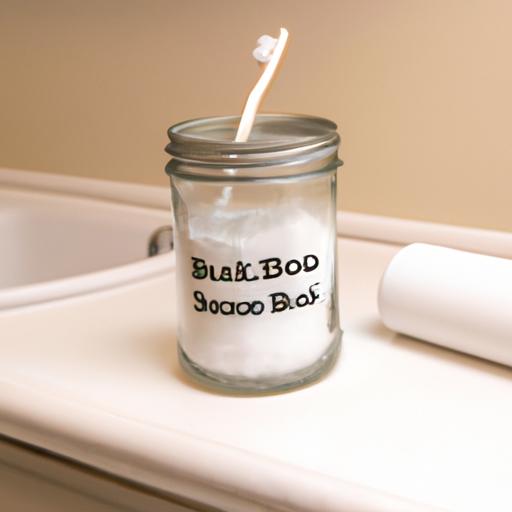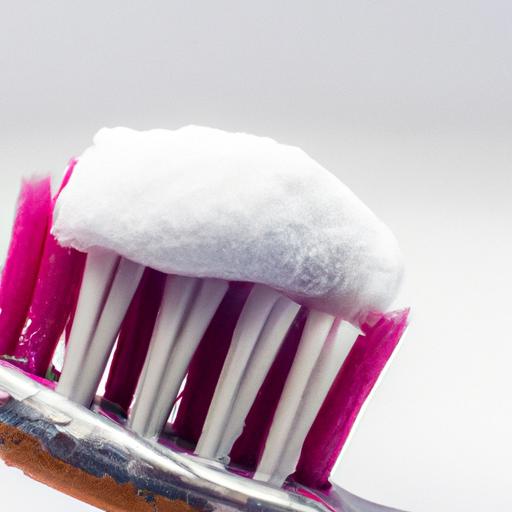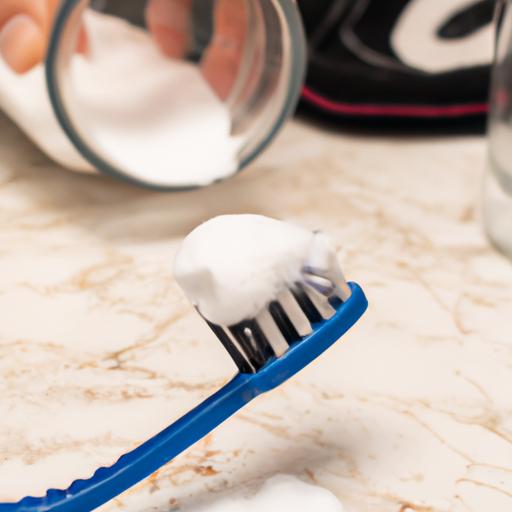Soda Benefits
Benefits of Brushing Your Teeth with Baking Soda
Introduction

Are you looking for a simple and effective way to improve your oral hygiene? Brushing your teeth with baking soda may be the answer you’re looking for. Oral hygiene is crucial for maintaining good health, and brushing your teeth is a vital part of that. However, not all toothpaste is created equal. Baking soda is a natural and affordable alternative that can help you achieve a brighter and healthier smile.
Baking Soda as a Teeth-Cleaning Alternative

So, what exactly is baking soda, and how does it work as a teeth-cleaning agent? Baking soda, also known as sodium bicarbonate, is a white crystalline powder that is commonly used in baking, cleaning, and personal hygiene products. When used for oral hygiene, baking soda’s mild abrasive properties help to remove plaque and surface stains from teeth without damaging the enamel.
Using baking soda as a teeth-cleaning alternative can provide a range of benefits for your oral health. From reducing plaque and tartar buildup to neutralizing acid in the mouth, brushing your teeth with baking soda is a simple and effective way to improve your overall oral hygiene. So, why not give it a try and see the benefits for yourself?
What is Baking Soda?
Definition and Composition of Baking Soda
Baking soda, also known as sodium bicarbonate, is a white crystalline powder that is composed of sodium and bicarbonate ions. It is a natural and versatile substance that has been used for centuries in a variety of ways, including cooking, cleaning, and personal hygiene.
How Baking Soda Works as a Teeth-Cleaning Agent
When it comes to oral hygiene, baking soda’s mild abrasive properties make it an effective teeth-cleaning agent. The abrasiveness of baking soda helps to remove plaque and surface stains from teeth without damaging the enamel. Additionally, baking soda can help neutralize acids in the mouth, which can lead to tooth decay and bad breath.
Baking soda can be used alone or in combination with other ingredients, such as water or hydrogen peroxide, to create a simple and effective toothpaste. Overall, baking soda is a natural and affordable alternative to traditional toothpaste that can help you achieve a brighter and healthier smile.
Benefits of Brushing Teeth with Baking Soda
Maintaining good oral hygiene is essential for healthy teeth and gums. Brushing your teeth with baking soda is a simple and effective way to improve your overall oral health. Here are some of the benefits of using baking soda as a teeth-cleaning agent.
Reduction of Plaque and Tartar Buildup
Plaque and tartar buildup on teeth can lead to tooth decay and gum disease. Baking soda’s mild abrasive properties help to remove plaque and tartar buildup, preventing these issues from developing.
Removal of Surface Stains
Regular consumption of coffee, tea, and other stain-inducing foods and drinks can cause surface stains on teeth. Baking soda’s abrasive properties help to remove these stains, revealing a brighter and healthier smile.
Neutralization of Acid in the Mouth
Acidic foods and drinks can erode tooth enamel, leading to sensitivity and decay. Baking soda helps to neutralize acid in the mouth, reducing the risk of enamel erosion and other oral health issues.
Prevention of Bad Breath
Bad breath can be caused by bacteria in the mouth. Baking soda’s antibacterial properties help to eliminate these bacteria, reducing the risk of bad breath.
Improvement of Overall Oral Health
Using baking soda as a teeth-cleaning agent can provide a range of benefits for your overall oral health. By reducing plaque and tartar buildup, removing surface stains, neutralizing acid in the mouth, and preventing bad breath, baking soda can help you achieve a brighter and healthier smile.
How to Brush Your Teeth with Baking Soda
Proper Way to Use Baking Soda for Teeth Cleaning
Brushing your teeth with baking soda is a simple process that can be done in just a few easy steps. First, wet your toothbrush and dip it into the baking soda. You can also sprinkle a small amount of baking soda onto your toothbrush if you prefer. Then, brush your teeth as you normally would, making sure to scrub all surfaces of your teeth and gums. After brushing, rinse your mouth thoroughly with water to remove any remaining baking soda.
Safety Precautions to Consider
While baking soda is generally safe for use in oral hygiene, there are a few things to keep in mind to ensure your safety. First, it’s important not to use too much baking soda, as it can be abrasive and damage your enamel. Stick to a small amount, such as a quarter teaspoon, and avoid brushing too hard. Additionally, if you have sensitive teeth or gums, baking soda may not be the best option for you. Consult with your dentist before using baking soda as a teeth-cleaning agent.
Alternative Methods for Baking Soda Use in Oral Hygiene
If you’re not a fan of the taste or texture of baking soda, there are other ways to incorporate it into your oral hygiene routine. One option is to mix baking soda with a small amount of water to create a paste that can be applied directly to your teeth and gums. Another option is to add a small amount of baking soda to your regular toothpaste to enhance its cleaning power. Whichever method you choose, be sure to use baking soda in moderation and consult with your dentist if you have any concerns.
Potential Risks and Side Effects of Using Baking Soda for Teeth Cleaning
Discussion of Potential Risks
While baking soda is generally safe to use for oral hygiene, there are some potential risks and side effects to be aware of. One of the main concerns is that baking soda is abrasive and can wear down the enamel on teeth if used too frequently or vigorously. This can lead to tooth sensitivity and increased risk of tooth decay.
Additionally, using baking soda can alter the pH balance in your mouth, making it more alkaline. While this can be beneficial in neutralizing acid, it can also lead to an overgrowth of harmful bacteria that thrive in an alkaline environment.
Tips to Minimize Risks and Side Effects
To minimize the risks and side effects of using baking soda for teeth cleaning, it’s important to use it in moderation and with care. Here are some tips to keep in mind:
- Limit use to once or twice a week to avoid excessive abrasion on tooth enamel.
- Use a soft-bristled toothbrush to avoid further damage to enamel.
- Mix baking soda with water to create a paste instead of using it in its powder form.
- Rinse your mouth thoroughly with water after brushing to remove any remaining baking soda.
- Avoid using baking soda if you have braces or other dental appliances, as it can damage them.
By following these tips, you can safely and effectively incorporate baking soda into your oral hygiene routine and enjoy the benefits of a brighter, healthier smile.
Conclusion
In conclusion, brushing your teeth with baking soda is an easy and affordable way to improve your oral hygiene. Baking soda provides a range of benefits, from reducing plaque and tartar buildup to neutralizing acid in the mouth. It’s important to remember to use baking soda in moderation, as excessive use can cause damage to the enamel. With the right approach, brushing your teeth with baking soda can be a safe and effective way to maintain a healthy and bright smile.
So, next time you’re looking to switch up your oral hygiene routine, why not give baking soda a try? Its natural and affordable properties make it an excellent alternative to traditional toothpaste. Remember to brush your teeth with baking soda in a gentle circular motion, and be sure to rinse your mouth thoroughly with water afterward. With a little bit of patience and consistency, you’ll be on your way to a healthier and happier smile in no time.


